
For the next subdivision of our flagship ranking, Best Christian Colleges and Universities, our sights turn to the West. As with the primary ranking, these schools are deliberately Christian in their Mission, Values, and Vision. Most provide a wide range of degree programs and all offer a top-notch education.
Deciding where to complete your post-secondary education can be a daunting task. Many factors must be considered to make the best decision. While net cost is a primary concern, there is much more information to be gathered and digested. Geography, philosophy of education, the variety of programs and individual school statistics (e.g., admission rate, retention rate and graduation rate) play an essential part in the final decision. To help you in the decision process, we offer the following list of the 25 Best Christian Colleges and Universities in the West.
The Methodology used in this ranking include the elements of:
- Student/Faculty Ratio
- Financial Aid prevalence
- Exclusivity (Admission Rate)
- Retention Rate and Graduation Rate
Equal weight was given to each element, and the totals were compiled into a preliminary ranking. This was further reviewed, and tie scores were settled by comparing net cost and the presence of financial aid.
25. Howard Payne University
Howard Payne University is a private Christian university. The school was founded in 1889 as a college and named for a founding benefactor, Edward Howard Payne. The school became formally affiliated with the Baptist General Convention of Texas in 1900 and consolidated with Daniel Baker College in 1953. In 1974, the Baptist General Convention recognized the school as a university. The school is on the north side of Brownwood. The campus is less than 10 miles from Lake Brownwood, which has a 530-acre State Park.
Howard Payne University is accredited by the Southern Association of Colleges and Schools, Commission on Colleges.It offers over 100 undergraduate degrees and 6 post-graduate programs through its seven schools. The student body totals nearly 1,200. The university has a strong student:faculty ratio of 11:1. Howard Payne University admits 89% of all applicants. 98% of full-time students receive some financial aid. The year over year retention rate is 51%, and the overall graduation rate is 41%.
| Student/Faculty Ratio | Financial Aid Rate | Admission Rate | Retention Rate | Graduation Rate |
|---|---|---|---|---|
| 11:1 | 98% | 89% | 51% | 41% |
24. Vanguard University of Southern California
Costa Mesa, California
 Vanguard University of Southern California is a private, Christian university. The school was founded in 1920 as the Southern California Bible School in Los Angeles to prepare Christian workers for ministry in the Assemblies of God Church. In 1939, the school became known as Southern California Bible College and was the first 4-year institution of the Assemblies of God Church. The school moved again in 1950 to its current campus in Costa Mesa. The school achieved university status in 1999 and took its current name of Vanguard. The small campus features open spaces in contrast to the high-density urban environment.
Vanguard University of Southern California is a private, Christian university. The school was founded in 1920 as the Southern California Bible School in Los Angeles to prepare Christian workers for ministry in the Assemblies of God Church. In 1939, the school became known as Southern California Bible College and was the first 4-year institution of the Assemblies of God Church. The school moved again in 1950 to its current campus in Costa Mesa. The school achieved university status in 1999 and took its current name of Vanguard. The small campus features open spaces in contrast to the high-density urban environment.
Vanguard University of Southern California is accredited by the Western Association of Schools and Colleges. It offers Bachelor’s Degrees in over 20 fields and Post-Graduate Degrees in six areas. It sponsors a Professional Studies Programs menu including five fields of study. The total enrollment is over 2,100, including nearly 1,800 undergraduate students. The student:faculty ratio is 13:1. Vanguard University admits 70% of all applicants and 93% of all full-time students receive some type of financial aid. The year by year retention rate is 75%. The overall graduation rate for the school is 56%.
| Student/Faculty Ratio | Financial Aid Rate | Admission Rate | Retention Rate | Graduation Rate |
|---|---|---|---|---|
| 13:1 | 93% | 70% | 75% | 56% |
23. East Texas Baptist University
Marshall, Texas
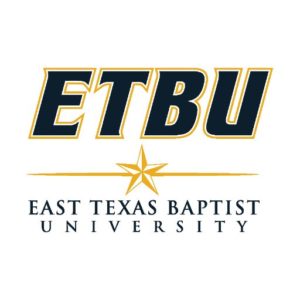 East Texas Baptist University is a private Christian school. The school was founded in 1912 as the College of Marshall to be a Southern Baptist college in eastern Texas. It was renamed East Texas Baptist College in 1944. The school achieved university status in 1984. The spacious campus features green spaces and tree-lined paths.
East Texas Baptist University is a private Christian school. The school was founded in 1912 as the College of Marshall to be a Southern Baptist college in eastern Texas. It was renamed East Texas Baptist College in 1944. The school achieved university status in 1984. The spacious campus features green spaces and tree-lined paths.
East Texas Baptist University is fully accredited with the Commission on Colleges of the Southern Association of Colleges and Schools. It offers undergraduate degrees in over 40 programs and 4 master’s programs through its eight schools. The student body is over 1,300. The student to faculty ratio is 14:1. East Texas Baptist University is a selective school, admitting just 49% of all applicants. 100% of full-time students receive some type of financial aid. The year over year retention rate is 68%, and the overall graduation rate is 38%.
| Student/Faculty Ratio | Financial Aid Rate | Admission Rate | Retention Rate | Graduation Rate |
|---|---|---|---|---|
| 14:1 | 100% | 49% | 68% | 38% |
22. Point Loma Nazarene University
San Diego, California
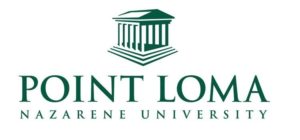 Point Loma Nazarene University is a private, Christian school. The school was founded in 1902 by several female laypersons of the Church of the Nazarene as Pacific Bible College. It moved and changed its name several times. In 1973, the school relocated to Point Loma and was called Point Loma College: an Institution of the Church of the Nazarene. In 1998 the name was changed to Point Loma Nazarene University. The 90-acre campus sits right on the Pacific Coast and offers spectacular vistas, open areas and the friendly climate of southern California.
Point Loma Nazarene University is a private, Christian school. The school was founded in 1902 by several female laypersons of the Church of the Nazarene as Pacific Bible College. It moved and changed its name several times. In 1973, the school relocated to Point Loma and was called Point Loma College: an Institution of the Church of the Nazarene. In 1998 the name was changed to Point Loma Nazarene University. The 90-acre campus sits right on the Pacific Coast and offers spectacular vistas, open areas and the friendly climate of southern California.
Point Loma Nazarene University is accredited by the WASC Senior Colleges and Universities Commission. It offers over 60 undergraduate degree programs and more than 45 post-graduate and adult degree programs through seven colleges and schools. The total enrollment is over 3,000. The student:faculty ratio is 15:1. Point Loma is a selective school, accepting only 69% of all applicants. 81% of starting, full-time students receive some form of financial aid. The year over year retention rate is 86%, and the overall graduation rate is 71%.
| Student/Faculty Ratio | Financial Aid Rate | Admission Rate | Retention Rate | Graduation Rate |
|---|---|---|---|---|
| 15:1 | 81% | 69% | 86% | 71% |
21. The Master’s University
Santa Clarita, California
 The Master’s University is a private, Christian university. The school was founded in 1927 as the Los Angeles Baptist Theological Seminary. In 1985 the name was changed to The Master’s College. At that time the school also formally became non-denominational. The college reached university status in 2016, still experiencing strong growth.
The Master’s University is a private, Christian university. The school was founded in 1927 as the Los Angeles Baptist Theological Seminary. In 1985 the name was changed to The Master’s College. At that time the school also formally became non-denominational. The college reached university status in 2016, still experiencing strong growth.
The Master’s University is accredited by The WASC Senior College and University Commission. The university comprises six schools and offers undergraduate degrees in a dozen general fields. It has nearly 2,000 students. It has a 14:1 student to faculty ratio. The Master’s University accepts 83% of all applicants. 85% of full-time undergraduates receive financial aid.iThe year by year retention rate is 88% and the overall graduation rate is 68%.
| Student/Faculty Ratio | Financial Aid Rate | Admission Rate | Retention Rate | Graduation Rate |
|---|---|---|---|---|
| 14:1 | 85% | 83% | 88% | 68% |
20. Oral Roberts University
Tulsa, Oklahoma
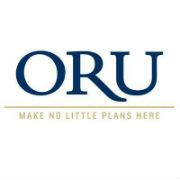 Oral Roberts University is a private Christian school The school was founded in 1965 by evangelist Oral Roberts. The campus is set in the southern portion of Tulsa on over 250 acres featuring contemporary architecture, open spaces and easy access to culture and activities.
Oral Roberts University is a private Christian school The school was founded in 1965 by evangelist Oral Roberts. The campus is set in the southern portion of Tulsa on over 250 acres featuring contemporary architecture, open spaces and easy access to culture and activities.
Oral Roberts University is accredited by the Higher Learning Commission and maintains membership in the Council for Christian Colleges and Universities, the Oklahoma Independent Colleges and Universities and the Council of Independent Colleges. The University offers over 75 undergraduate degrees and 14 post-graduate programs in five colleges. Enrollment is over 3,800. Students come from all 50 states and nearly 90 foreign countries. Student:faculty ratio is 16:1. Oral Roberts University is a selective school, admitting just 68% of all applicants. 87% of all students receive financial aid. The year over year retention rate is 82%, and the overall graduation rate is 57%.
| Student/Faculty Ratio | Financial Aid Rate | Admission Rate | Retention Rate | Graduation Rate |
|---|---|---|---|---|
| 16:1 | 87% | 68% | 82% | 57% |
19. George Fox University
Newberg, Oregon
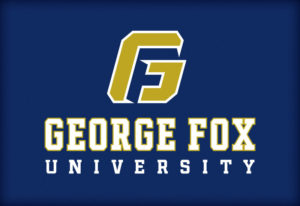 George Fox University is a private, Christian university. Founded in 1885 by Quaker pioneers as Friends Pacific Academy, it became a Pacific College in 1891. In 1945 the school was renamed to George Fox College. In 1996, the college merged with Western Evangelical Seminary and became George Fox University. The school is now the second-largest private university in Oregon and is the oldest Christian university in the state. Just 25 miles from Portland, students have plenty of opportunity for culture and activities available in a metropolitan environment. In addition to the Newberg location, George Fox University also sponsors satellite locations in Brooks, Portland and Redmond, OR.
George Fox University is a private, Christian university. Founded in 1885 by Quaker pioneers as Friends Pacific Academy, it became a Pacific College in 1891. In 1945 the school was renamed to George Fox College. In 1996, the college merged with Western Evangelical Seminary and became George Fox University. The school is now the second-largest private university in Oregon and is the oldest Christian university in the state. Just 25 miles from Portland, students have plenty of opportunity for culture and activities available in a metropolitan environment. In addition to the Newberg location, George Fox University also sponsors satellite locations in Brooks, Portland and Redmond, OR.
George Fox University is accredited by the Northwest Commission on Colleges and Universities. Many departments hold program-specific accreditation credentials as well. The university offers over three dozen undergraduate degrees as well as graduate and adult/continuing education programs. The student body is over 4,000. Student:faculty ratio is 14:1. Students from 37 states and several foreign countries are represented on campus. George Fox University admits approximately 64% of all applicants. 88% of students receive at least one form of financial aid. The year over year retention rate is 81%; the overall graduation rate is 64%.
| Student/Faculty Ratio | Financial Aid Rate | Admission Rate | Retention Rate | Graduation Rate |
|---|---|---|---|---|
| 14:1 | 88% | 64% | 81% | 64% |
18. Northwest Christian University
Eugene, Oregon
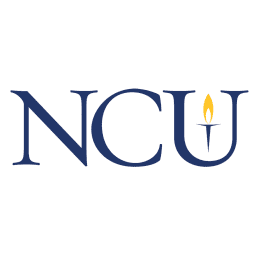 Northwest Christian University is a private, Christian university. The school was founded in 1895 as the Eugene Divinity School. The school became Northwest Christian University as of 2008. Being set in metropolitan Eugene, students have easy access to many cultural and social activities associated with a major city.
Northwest Christian University is a private, Christian university. The school was founded in 1895 as the Eugene Divinity School. The school became Northwest Christian University as of 2008. Being set in metropolitan Eugene, students have easy access to many cultural and social activities associated with a major city.
Northwest Christian University is accredited by the Northwest Commission on Colleges and Universities. It is also a member of several notable organizations including the Council of Christian Colleges and Universities, and others. Enrollment is more than 700 undergraduates. The student:faculty ratio is 13: 1. A selective school, Northwest Christian University admits just 67% of all applicants. 89% of all starting, full-time students receive some form of financial aid. Students are loyal to the school, reflected in a 78% retention rate year over year. The overall graduation rate is 51%.
| Student/Faculty Ratio | Financial Aid Rate | Admission Rate | Retention Rate | Graduation Rate |
|---|---|---|---|---|
| 13:1 | 89% | 67% | 78% | 51% |
17. Seattle Pacific University
Seattle, Washington
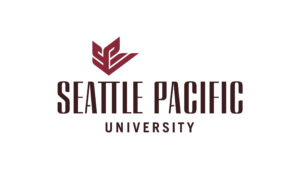 Seattle Pacific University is a private, Christian institution. The school was founded in 1891 as the Seattle Seminary by Free Methodist pioneers. The school changed its name to Seattle Pacific College in 1915 and achieved university status in 1977. The campus’ location within the city limits of Seattle provides for many opportunities for cultural and social activities available in a significant metropolitan environment.
Seattle Pacific University is a private, Christian institution. The school was founded in 1891 as the Seattle Seminary by Free Methodist pioneers. The school changed its name to Seattle Pacific College in 1915 and achieved university status in 1977. The campus’ location within the city limits of Seattle provides for many opportunities for cultural and social activities available in a significant metropolitan environment.
Seattle Pacific University is accredited by the Northwest Commission on Colleges and Universities It is affiliated with both the Christian College Consortium and the Council of Christian Colleges and Universities. The University offers over 65 undergraduate degrees as well as 35 post-graduate degrees through its one college and five schools. Enrollment totals close to 4,000 students The student:faculty ratio is 14:1. A moderately selective school, Seattle Pacific University admits 87% of all applicants. 94% of starting, full-time students receive at least one form of financial aid. Students are loyal to their school as shown by the 82% year over year retention rate. The overall graduation rate is 71%.
| Student/Faculty Ratio | Financial Aid Rate | Admission Rate | Retention Rate | Graduation Rate |
|---|---|---|---|---|
| 14:1 | 94% | 87% | 82% | 71% |
16. Northwest University
Kirkland, Washington
 Northwest University is a private, Christian university. The school was established in 1943 as Northwest Bible Institute by the Northwest Ministry Network of the Assemblies of God. In 1958, the college relocated to its present site. The school achieved university status in 2004. Northwest University maintains affiliation with the Assemblies of God Church.
Northwest University is a private, Christian university. The school was established in 1943 as Northwest Bible Institute by the Northwest Ministry Network of the Assemblies of God. In 1958, the college relocated to its present site. The school achieved university status in 2004. Northwest University maintains affiliation with the Assemblies of God Church.
Northwest University is accredited by the Northwest Commission on Colleges and Universities and offers degrees through its five colleges, one center and one school. The total enrollment includes almost 1,000 undergraduate students. The student:faculty ratio is 9:1. Northwest University is more open in its admission policies, admitting 93% of all applicants. 93% of all starting, full-time students receive at least one form of financial aid. Students are very loyal to the school, as evidenced by the year by year retention rate of 76%. The overall graduation rate is 56%.
| Student/Faculty Ratio | Financial Aid Rate | Admission Rate | Retention Rate | Graduation Rate |
|---|---|---|---|---|
| 9:1 | 93% | 93% | 76% | 56% |
15. LeTourneau University
Longview, Texas
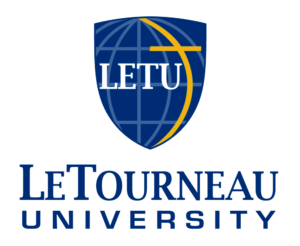 LeTourneau University is a private, Christian university. In 1961, the school formally separated from LeTourneau Incorporated, changed its name to LeTourneau College and admitted women. In 1989 the school reached university status. The University is known for its Christ-centered approach in education and rich history of excellent technical and professional training combined with a hands-on learning experience.
LeTourneau University is a private, Christian university. In 1961, the school formally separated from LeTourneau Incorporated, changed its name to LeTourneau College and admitted women. In 1989 the school reached university status. The University is known for its Christ-centered approach in education and rich history of excellent technical and professional training combined with a hands-on learning experience.
LeTourneau University is accredited by the Commission on Colleges of the Southern Association of Colleges and Schools and comprises four colleges and one school. The student body is over 3,000. Students come from 46 states and 29 foreign countries. LeTourneau University has an excellent student:faculty ratio of 12:1. A selective school, only 44% of all applicants are admitted. 63% of starting, full-time students receive some form of financial aid. The school boasts a 78% year by year retention rate and has an overall graduation rate of 53%.
| Student/Faculty Ratio | Financial Aid Rate | Admission Rate | Retention Rate | Graduation Rate |
|---|---|---|---|---|
| 12:1 | 63% | 44% | 78% | 53% |
14. Fresno Pacific University
Fresno, California
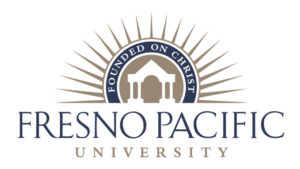 Fresno Pacific University is a private Christian university. The school was founded in 1944 as Pacific Bible Institute by the Pacific District Conference of Mennonite Brethren Churches. In 1959, the school expanded and moved to a new location in Fresno, changing the name to Pacific College. In 1976, “Fresno” was added to the school’s name and the school achieved university status in 1997. Fresno Pacific University is recognized as one of the top 10 Hispanic-Serving Institutions in the nation for its high graduation rate among Hispanic students.
Fresno Pacific University is a private Christian university. The school was founded in 1944 as Pacific Bible Institute by the Pacific District Conference of Mennonite Brethren Churches. In 1959, the school expanded and moved to a new location in Fresno, changing the name to Pacific College. In 1976, “Fresno” was added to the school’s name and the school achieved university status in 1997. Fresno Pacific University is recognized as one of the top 10 Hispanic-Serving Institutions in the nation for its high graduation rate among Hispanic students.
Fresno Pacific University is accredited by the WASC Senior College and University Commission. Over 100-degree programs are available. The student body totals 2,400. The student:faculty ratio is 13:1. Fresno Pacific University is selective in its admission policy, admitting 68% of applicants. Most starting, full-time students receive at least one form of financial aid. The school has a retention rate of 86% year over year. The overall graduation rate is 62%.
| Student/Faculty Ratio | Financial Aid Rate | Admission Rate | Retention Rate | Graduation Rate |
|---|---|---|---|---|
| 13:1 | XX% | 68% | 86% | 62% |
13. Biola University
La Mirada, California
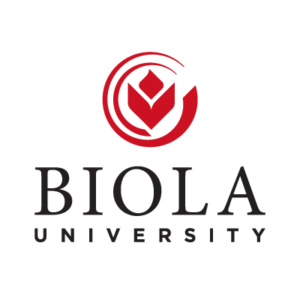 Biola University is a private Christian university. The school was founded in 1908 as Bible Institute of Los Angeles (BIOLA). Biola’s location between Los Angeles and Anaheim provides numerous opportunities for culture and other activities associated with large cities.
Biola University is a private Christian university. The school was founded in 1908 as Bible Institute of Los Angeles (BIOLA). Biola’s location between Los Angeles and Anaheim provides numerous opportunities for culture and other activities associated with large cities.
Biola University is accredited by the WASC Senior College and University Commission. Several departments hold program-specific accreditation. The University comprises eight schools. There are also five Centers and Institutes. The total enrollment is over 6,000 students, including 4,000 undergraduates. The student:faculty ratio is 15:1. Biola University admits 65% of all applicants and 98% of all starting, and full-time students receive at least one form of financial aid. The retention rate of 84%. Biola University has an overall graduation rate of 72%.
| Student/Faculty Ratio | Financial Aid Rate | Admission Rate | Retention Rate | Graduation Rate |
|---|---|---|---|---|
| 13:1 | XX% | 68% | 86% | 62% |
12. Hardin-Simmons University
Abilene, Texas
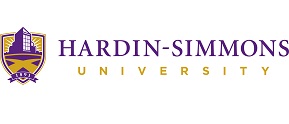 Hardin-Simmons University is a private, Baptist university. The school was founded in 1891 as Abilene Baptist College. The next year the school was renamed to Simmons College. It reached university status in 1925. The addition of Hardin to the university’s name occurred in 1934 to honor other contributors. Hardin-Simmons University has maintained an affiliation with the Baptist General Convention of Texas since 1941.
Hardin-Simmons University is a private, Baptist university. The school was founded in 1891 as Abilene Baptist College. The next year the school was renamed to Simmons College. It reached university status in 1925. The addition of Hardin to the university’s name occurred in 1934 to honor other contributors. Hardin-Simmons University has maintained an affiliation with the Baptist General Convention of Texas since 1941.
Hardin-Simmons University is accredited by the Southern Association of Colleges and School. It offers Bachelor’s Degrees in 70 fields and Graduate Degrees in 18 programs as well as pre-professional programs. The student body totals over 2,200 students which include 1,700 undergraduates. The student:faculty ratio is 12:1. The University reflects a generous admission policy in its 88% admission rate. Retention is 71%. All starting, full-time students receive at least one form of financial aid. The overall graduation rate for Hardin-Simmons University is 52%.
| Student/Faculty Ratio | Financial Aid Rate | Admission Rate | Retention Rate | Graduation Rate |
|---|---|---|---|---|
| 12:1 | 100% | 88% | 71% | 52% |
11. Abilene Christian University
Abilene, Texas
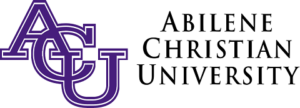 Abilene Christian University (ACU) is a private Christian university. The school was founded in 1906 as the Childers Classical Institute supported by the Churches of Christ in Abilene. The school changed the name to Abilene Christian College. In 1929 the college moved to its present location. Abilene Christian College achieved University status in 1976.
Abilene Christian University (ACU) is a private Christian university. The school was founded in 1906 as the Childers Classical Institute supported by the Churches of Christ in Abilene. The school changed the name to Abilene Christian College. In 1929 the college moved to its present location. Abilene Christian College achieved University status in 1976.
Abilene Christian University is accredited by the Southern Association of Colleges and Schools Commission on Colleges. It offers 70 Bachelor’s Degree programs, 27 Graduate Degree programs, and three Doctorates. Also, ACU has a robust online post-graduate studies program featuring Certifications and Master’s Degrees. The total enrollment at ABU is nearly 5,000 students, including about 3,750 undergraduates. The student:faculty rati is 14:1. ACU is a selective school evidenced by a 51% admission rate for all applicants. All starting, full-time students receive at least one form of financial aid. The year over year retention rate is 76%. The overall graduation rate is 62%.
| Student/Faculty Ratio | Financial Aid Rate | Admission Rate | Retention Rate | Graduation Rate |
|---|---|---|---|---|
| 14:1 | 100% | 51% | 76% | 62% |
10. Whitworth University
Spokane, Washington
 Whitworth University is a private, Christian school. The school dates back to 1890. In 1942 the school merged with Spokane Junior College. The school achieved university status in 2006. Whitworth University demonstrates a commitment to energy efficiency. All new construction since 2010 must be LEED certified (Leadership in Energy and Environmental Design). The school continues to audit its carbon footprint to minimize environmental impact.
Whitworth University is a private, Christian school. The school dates back to 1890. In 1942 the school merged with Spokane Junior College. The school achieved university status in 2006. Whitworth University demonstrates a commitment to energy efficiency. All new construction since 2010 must be LEED certified (Leadership in Energy and Environmental Design). The school continues to audit its carbon footprint to minimize environmental impact.
Whitworth University is accredited by the Northwest Commission on Colleges and Universities. It offers Bachelor’s Degrees in nearly 50 programs, Graduate Degrees in nine fields of study and Adult Continuing Education programs. Enrollment is over 2,600, with about 2,300 are undergraduates.Student:faculty ratio is 12:1. The student body is gathered from 33 states and 40 foreign countries. Whitworth is relatively selective in its admission policy, with 60% of all applicants are admitted. Nearly 90% of all starting, full-time students receive at least one form of financial aid. Retention rate 85% year by year retention rate. The overall graduation rate for the University is 73%.
| Student/Faculty Ratio | Financial Aid Rate | Admission Rate | Retention Rate | Graduation Rate |
|---|---|---|---|---|
| 12:1 | 89% | 60% | 85% | 73% |
9. Oklahoma Baptist University
Shawnee, Oklahoma
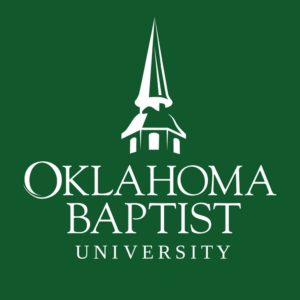 Oklahoma Baptist University (OBU) is a private, Christian university. The school was founded in 1910 by the Baptist General Convention to provide higher education firmly based on Christian principles. While Shawnee is a smaller city, the capital city of Oklahoma City is just 35 miles to the west and is an excellent resource for cultural and recreational activities.
Oklahoma Baptist University (OBU) is a private, Christian university. The school was founded in 1910 by the Baptist General Convention to provide higher education firmly based on Christian principles. While Shawnee is a smaller city, the capital city of Oklahoma City is just 35 miles to the west and is an excellent resource for cultural and recreational activities.
Oklahoma Baptist University is accredited by the Higher Learning Commission and offers Bachelor’s Degrees in over 85 areas of study. OBU also confers Master’s Degrees in several areas. Certificate programs are available as well. The student enrollment is over 2,000. The student:faculty ratio is 13:1. The school draws students from 40 states and 35 foreign countries. OBU is selective in their admissions program as reflected in their 60% admission rate. The year by year retention rate for students is 68%. The overall graduation rate is 57%. All beginning, full-time students receive at least one form of financial aid.
| Student/Faculty Ratio | Financial Aid Rate | Admission Rate | Retention Rate | Graduation Rate |
|---|---|---|---|---|
| 13:1 | 100% | 60% | 68% | 57% |
8. San Diego Christian College
Santee, California
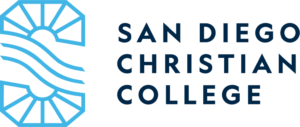 San Diego Christian College (SDCC) is a private Christian college located in Santee, California, a suburb of San Diego. The school was founded in 1970 and was initially named the Christian Heritage College. Fourteen years after its launch, the college was accredited. The college was renamed San Diego Christian College in 2005. It moved to its current campus location near the San Diego River in 2014.
San Diego Christian College (SDCC) is a private Christian college located in Santee, California, a suburb of San Diego. The school was founded in 1970 and was initially named the Christian Heritage College. Fourteen years after its launch, the college was accredited. The college was renamed San Diego Christian College in 2005. It moved to its current campus location near the San Diego River in 2014.
San Diego Christian College is accredited by the Senior Commission of the Western Association of Schools and Colleges. It offers 11 Bachelor’s Degrees as well as Graduate and Adult Studies programs. The enrollment numbers over 700 students. The student:faculty ratio is 8:1. SDCC is also somewhat selective, as reflected in their admission rate of 53% of all applicants. Nearly all starting, full-time students receive at least one form of financial aid. The year by year retention rate is 68%. The overall graduation rate for San Diego Christian College is 52%.
| Student/Faculty Ratio | Financial Aid Rate | Admission Rate | Retention Rate | Graduation Rate |
|---|---|---|---|---|
| 8:1 | 99% | 53% | 68% | 52% |
7. Warner Pacific College
Portland, Oregon
 Warner Pacific College is a private Christian college. The school was founded in 1937 as Pacific Bible College in Spokane, Washington. The school was established by the Church of God and is the only CoG post-secondary school in the western states. Three years after launch, the school relocated to Portland, Oregon. In addition to the main campus in Portland, there are five satellite locations throughout metro Portland and Vancouver, Washington.
Warner Pacific College is a private Christian college. The school was founded in 1937 as Pacific Bible College in Spokane, Washington. The school was established by the Church of God and is the only CoG post-secondary school in the western states. Three years after launch, the school relocated to Portland, Oregon. In addition to the main campus in Portland, there are five satellite locations throughout metro Portland and Vancouver, Washington.
Warner Pacific College is accredited by the Northwest Commission on Colleges and Universities. It offers over two dozen Bachelor’s Degrees, four post-graduate degrees, and seven pre-professional programs. The student body numbers over 1,100. Almost 500 are traditional undergraduate students. The student:faculty ratio is 12:1. Warner Pacific College is somewhat selective in its admission program, admitting only 53% of all applicants. 98% of all starting, full-time students receive at least one form of financial aid. The school’s year by year retention rate is 61%, and the overall graduation rate is 41%.
| Student/Faculty Ratio | Financial Aid Rate | Admission Rate | Retention Rate | Graduation Rate |
|---|---|---|---|---|
| 12:1 | 98% | 53% | 61% | 41% |
6. Corban University
Salem, Oregon
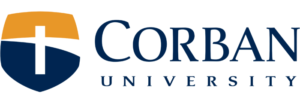 Corban University is a private Christian school. The school was founded in 1935 as the Phoenix Bible Institute in Phoenix, Arizona. The school relocated to Oakland, California and transitioned to Western Baptist Bible College under the support of the General Association of Regular Baptist Churches. Finally, in 1969, the school relocated again to its present location in the Willamette Valley region of Oregon. The name was changed to Corban College in 2005. The school reached University status in 2010.
Corban University is a private Christian school. The school was founded in 1935 as the Phoenix Bible Institute in Phoenix, Arizona. The school relocated to Oakland, California and transitioned to Western Baptist Bible College under the support of the General Association of Regular Baptist Churches. Finally, in 1969, the school relocated again to its present location in the Willamette Valley region of Oregon. The name was changed to Corban College in 2005. The school reached University status in 2010.
Corban University is accredited by the Northwest Commission on Colleges and Universities and is \ a member of the Association of Christian Schools International.It offers 40 Degree programs. The school enrollment, totaling over 2,000, includes over 1,100 residential students. The student:faculty ratio is 13:1. Corban is a selective school, only admitting 35% of all applicants. The year by year retention rate is 80%. The overall graduation rate is 59%. 88% of all starting, full-time students receive at least one form of financial aid.
| Student/Faculty Ratio | Financial Aid Rate | Admission Rate | Retention Rate | Graduation Rate |
|---|---|---|---|---|
| 13:1 | 88% | 35% | 80% | 59% |
5. Dallas Baptist University
Dallas, Texas
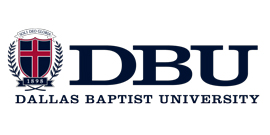 Dallas Baptist University is a private Christian liberal arts university. The school was founded in 1989 as Decatur Baptist College which was the first two-year post-secondary school in Texas. In 1965 the school relocated from Decatur to the southwestern area of Dallas overlooking Mountain Creek Lake, taking the new name of Dallas Baptist College. The school achieved university status in 1968.
Dallas Baptist University is a private Christian liberal arts university. The school was founded in 1989 as Decatur Baptist College which was the first two-year post-secondary school in Texas. In 1965 the school relocated from Decatur to the southwestern area of Dallas overlooking Mountain Creek Lake, taking the new name of Dallas Baptist College. The school achieved university status in 1968.
Dallas Baptist University is accredited by the Southern Association of Colleges and Schools Commission on Colleges and offers Associates Degrees, Bachelor’s Degrees, Master’s Degrees and Doctorates through its nine colleges and schools. While the student body numbers well above 5,100, students enjoy a close availability to faculty as shown by its 12:1 student:faculty ratio. DBU is also selective in its admission policy – only 43% of applicants are admitted. Over 96% of all starting, full-time students receive at least one form of financial aid. The year by year retention rate is 77%. The graduation rate for DBU is 59%.
| Student/Faculty Ratio | Financial Aid Rate | Admission Rate | Retention Rate | Graduation Rate |
|---|---|---|---|---|
| 12:1 | 96% | 43% | 77% | 59% |
4. Simpson University
Redding, California
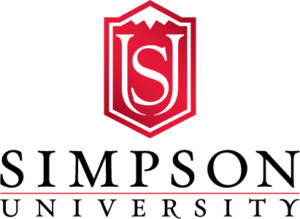 Simpson University is a private Christian school. The school was founded in 1921 in Washington State as the Simpson Bible Institute. The school maintains a close affiliation with the Christian and Missionary Alliance. Simpson was designated as the official western region school of the C&MA around 1945, offering programs in Theology, Missiology and Bible/Music. The Bible Institute transitioned into Simpson College in 1971. After several moves, the campus was established at its present location in 1989 in response to growing admissions and broadened academics.
Simpson University is a private Christian school. The school was founded in 1921 in Washington State as the Simpson Bible Institute. The school maintains a close affiliation with the Christian and Missionary Alliance. Simpson was designated as the official western region school of the C&MA around 1945, offering programs in Theology, Missiology and Bible/Music. The Bible Institute transitioned into Simpson College in 1971. After several moves, the campus was established at its present location in 1989 in response to growing admissions and broadened academics.
Simpson University is accredited by the Western Association of Schools and Colleges. It offers over two dozen undergraduate degree programs and eight graduate programs. Additionally, Simpson University includes a Seminary, Adult Studies programs, and two Nursing programs. The student body is over 1,000 students. The school has an 11:1 student:faculty ratio. Simpson University is somewhat selective in its admission policy – only 52% of all applicants are admitted. Retention rate is 82%. The school’s graduation rate is 47%. 100% of all starting, full-time students receive at least one form of financial aid.
| Student/Faculty Ratio | Financial Aid Rate | Admission Rate | Retention Rate | Graduation Rate |
|---|---|---|---|---|
| 11:1 | 100% | 52% | 82% | 47% |
3. Oklahoma Christian University
Oklahoma City, Oklahoma
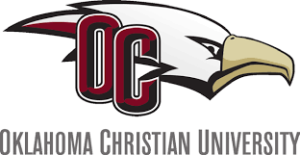 Oklahoma Christian University (OCU) is a private Christian university. The school was founded in 1950 by members of the Churches of Christ. OCU maintains affiliations with the Council for Christian Colleges and Universities, the National Association of Independent Colleges and Universities, the Christian Higher Education Foundation, and Oklahoma Independent Colleges and Universities. OCU is specifically affiliated with the Churches of Christ and admits students from all backgrounds. Proximity to Oklahoma City provides the cultural advantages of a large city.
Oklahoma Christian University (OCU) is a private Christian university. The school was founded in 1950 by members of the Churches of Christ. OCU maintains affiliations with the Council for Christian Colleges and Universities, the National Association of Independent Colleges and Universities, the Christian Higher Education Foundation, and Oklahoma Independent Colleges and Universities. OCU is specifically affiliated with the Churches of Christ and admits students from all backgrounds. Proximity to Oklahoma City provides the cultural advantages of a large city.
Oklahoma Christian University is accredited by the Higher Learning Commission and comprises five Colleges. It offers over 60 degree programs. The student body numbers over 2,500. The student:faculty ratio is 13:1. OCU is a somewhat selective school reflected in the general admission rate of 61%. All starting, full-time students receive at least one form of financial.The year over year retention rate is 77%. The graduation rate for OCU is 49%.
| Student/Faculty Ratio | Financial Aid Rate | Admission Rate | Retention Rate | Graduation Rate |
|---|---|---|---|---|
| 13:1 | 100% | 61% | 77% | 49% |
2. Azusa Pacific University
Azusa, California
 Azusa Pacific University (APU) is a private, Evangelical Christian university. Launched in 1899 as the Training School for Christian Workers,APU was the first west-coast Bible College. Founded explicitly for the training of students for ministry and service in and to the Christian Church, APU has no formal denominational affiliation, although it holds a Wesleyan-Arminian doctrine. In addition to the Azusa campus location, the school also has a presence in Los Angeles and six Regional locations.
Azusa Pacific University (APU) is a private, Evangelical Christian university. Launched in 1899 as the Training School for Christian Workers,APU was the first west-coast Bible College. Founded explicitly for the training of students for ministry and service in and to the Christian Church, APU has no formal denominational affiliation, although it holds a Wesleyan-Arminian doctrine. In addition to the Azusa campus location, the school also has a presence in Los Angeles and six Regional locations.
Azusa Pacific University is accredited by the WASC Senior College and University Commission as well as 13 specific professional accreditations. APU offers over 100-degree programs for both undergraduate and graduate students available on-campus, online and through its regional locations. The enrollment at APU is over 10,000. Approximately 6,000 are undergraduate students. The student:faculty ratio is 12:1. APU is somewhat selective in its admission policy. Only 61% of all applicants are accepted. Once admitted, nearly all beginning, full-time students receive at least one form of financial aid. The year by year retention rate is 86%. Graduation rate is 70% .
| Student/Faculty Ratio | Financial Aid Rate | Admission Rate | Retention Rate | Graduation Rate |
|---|---|---|---|---|
| 12:1 | 98% | 61% | 86% | 70% |
1. Westmont College
Santa Barbara, California
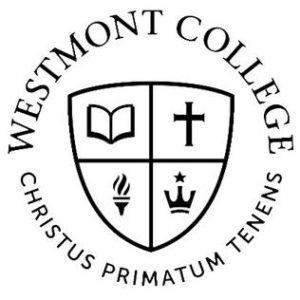 Westmont College is a private, Christian liberal arts college. The school was founded in 1937. The Bible Missionary Institute in Los Angeles opened its doors with 72 students and 16 staff members. Within three years, the school changed its name to Westmont College. After a couple of moves within the LA area, the campus moved Santa Barbara.
Westmont College is a private, Christian liberal arts college. The school was founded in 1937. The Bible Missionary Institute in Los Angeles opened its doors with 72 students and 16 staff members. Within three years, the school changed its name to Westmont College. After a couple of moves within the LA area, the campus moved Santa Barbara.
Westmont College is accredited by the WASC Senior College and University Commission. It offers a wide range of undergraduate degree programs comprised of over 25 Bachelor’s Degrees, more than 10 Pre-Professional Certification programs and two levels of Education Credential programs. The student body is nearly 1,300 strong. The student:faculty ratio is 12:1 . Although Westmont does not offer “open enrollment,” the admission rate for all applicants is a generous 83%. The retention rate is 82%. The graduation rate is 77%. Over 95% of all starting, full-time students receive at least one type of financial aid.
| Student/Faculty Ratio | Financial Aid Rate | Admission Rate | Retention Rate | Graduation Rate |
|---|---|---|---|---|
| 12:1 | 95% | 83% | 82% | 77% |
Related Resources:
